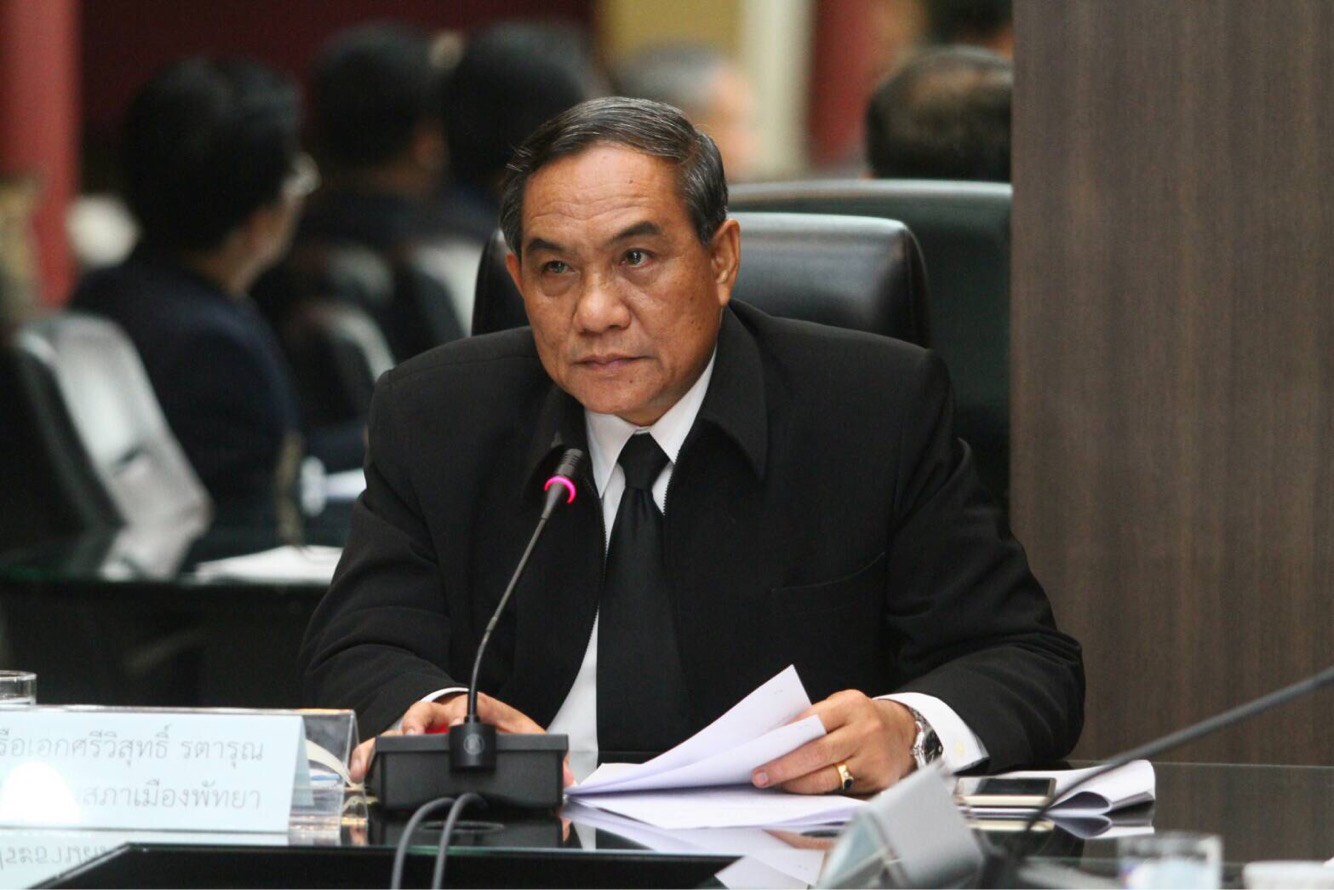Proposed rules would break ‘influential’ families’ stranglehold on public sand
The military is taking square aim at corrupt local politicians and “influential” families with new rules that would greatly restrict chair and umbrella vendors on Pattaya and Jomtien beaches.
Navy Adm. Sriviset Rodarun, vice chairman of the Pattaya City Council, met with army and city officials and beach chair vendors April 27 to outline revised ideas first suggested in November that would see beaches cleared of all umbrellas two days a week and break the stranglehold powerful vendors have had on public sand for decades.
Under the new regulations, operators would be limited to renting only one 9-by-7-meter plot, forbidden from transferring their franchise to children and relatives, subjected to bidding for their franchise every year, required to put out chairs only on request, and barred from cooking on the beach.

The proposals now will be sent to mayoral advisor and former Chonburi governor Pracha Taerat for review with affected parties and possible revision. Pracha, also appointed by the central government to advise the National Anti-Corruption Commission, will then forward the final rules to Mayor Anan Charoenchasri for signature.
The move – sure to be controversial with both vendors and tourists who already bemoan a lack of shade from the harsh Pattaya sun on Wednesdays – comes after the military prodded former city administrators to crack down on vendors in 2014 following a corruption investigation.
Even as the army banned chairs and umbrellas from Phuket, Phi Phi and other Thai beaches, city hall got the navy to acquiesce to Pattaya’s bid to continue chair service, on the condition that the plots would be shrunk to free up more sand for public use.
Plots are now set to shrink a further 7-9 percent, with total public beachfront taken up by private operators on Pattaya Beach dropping 7.3 percent from 1,146 meters to 1,062 meters. Occupied sand on Jomtien Beach would drop from the current 2.477 kilometers to 2.259 km, a decline of 8.8 percent.
While navy officials talk about returning nature to tourists, their true aim is the corruption that has allowed well-connected families to basically “own” large swaths of Pattaya’s public beaches for generations.
Currently, many large vendors operate as many as five consecutive 7-by-7-meter plots, sublease them to friends and relatives at a markup, pass on the franchises to children as inheritance and hold on to their licenses for decades.
The new rules would do away with all of that, limiting franchisees to one plot, forbidding transfer or sublease of the license and putting all plots up for a random drawing every year.
Critics of the current system say the crackdown is long overdue.
Three months after the coup in October 2014, then Chonburi Permanent Secretary Chawalit Saeng-Uthai – now the deputy governor – said 252 of the vendors on Pattaya, Jomtien and Dongtan beaches insisted they owned the sand on which they operate.
Chawalit bluntly stated that local government corruption supported the false beliefs that individuals could own public land.
He said vendors told his 10 investigative teams that they were paying 5,000-50,000 baht a month to “owners” of their 7-by-7-meter lots. Half have opted to “buy” the public property for up to 1 million baht.
All the money went into the pockets of government officials who he declined to, or was unable to, identify. Vendors who rent their lots told him government officials and city politicians approved their rental contract.
Chawalit noted, however, that many of those renting vendors were never registered with the city, again pointing to private deals between the operators and the government officials who approved them.




